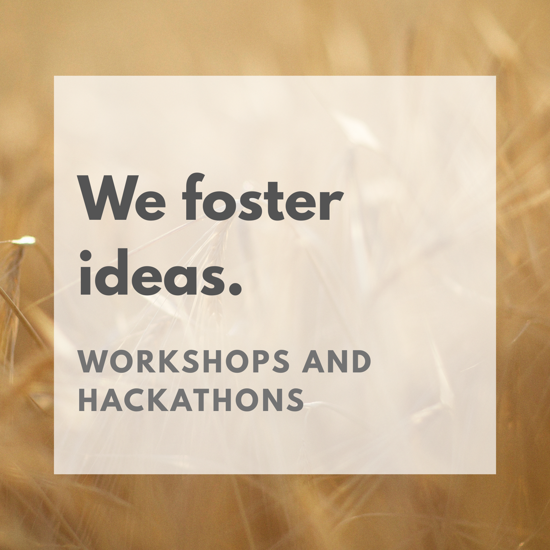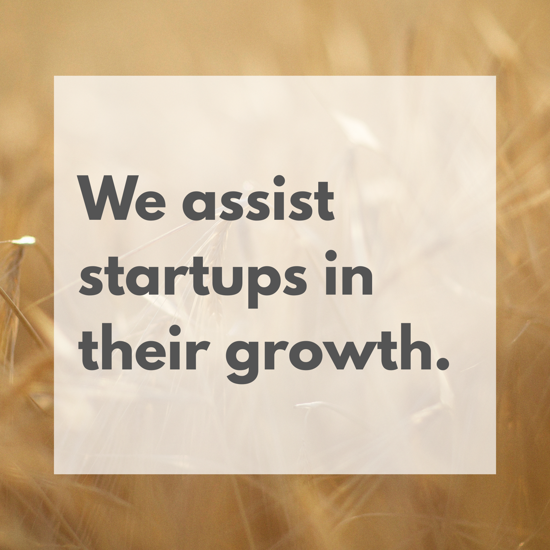

In focus: Agrofood
The North-West region aims to develop a competitive, innovative, and sustainable agro-food sector, leveraging local resources and agricultural traditions in line with European policies. Agrofood is identified as a priority domain for regional smart specialization, meaning that the focus is on investments and innovation to drive the structural transformation of this sector and enhance regional economic competitiveness. The overarching vision is to create modern agriculture with integrated value chains, ensuring food security, generating local added value, and contributing to the well-being of rural communities, while maintaining a balance with the environment and sustainable development goals. Therefore, the region aims to become a center of excellence in the field, where innovation, digitalization, and collaboration between farmers, businesses, universities, and authorities accelerate the transition to a nationally and European competitive agricultural economy.
Digital Agriculture (Smart Farming) – the implementation of specialized ERP systems and IoT sensors for crop monitoring and resource management increases the efficiency of the agricultural chain. Investments in drones, GPS for machinery, and agricultural data applications.
Organic Farming – the demand in the European market for organic products (vegetables, fruits, dairy) and EU subsidies for organic farms make the conversion to organic farming attractive, benefiting from clean soils and local traditions.
Horticulture and Smart Greenhouses – expanding crops in protected environments with IoT technology (climate control, hydroponics) allows for year-round local production.
Local Agro-food Processing – dairy (artisan cheeses), meat, and cereal processing units add value to agricultural production.
Beekeeping and Medicinal Plants – Romania has a global reputation for honey and aromatic plants (essential oils), and the region, with its mountainous terrain and clean soils, is ideal for investments in modern beekeeping and natural supplement processing.
Viticulture and Winemaking – the vineyards in the North-West and local traditions can be developed for quality regional wines, including wine tourism. The region has been included in the European network of gastronomic regions.
Agricultural Bioenergy – investments in biogas (fermentation of plant residues and animal manure) are supported by the EU environmental strategy; the North-West, with its large farms and forested areas, can produce biofuels.
Irrigation and Plant Nutrition Technologies – climate change increases the need for smart irrigation solutions and sensor-based fertilization.
Modernized Animal Farming – investments in meat and dairy farms equipped with automation (automatic feeders, health sensors) capitalize on the relatively low labor costs and regional demand.
Value Chain and Food Traceability – modern cold storage centers and IT solutions for product traceability (scanning barcodes, quality certification) enable larger exports to the EU.
Agricultural Recycling and Circularity – technologies for transforming agricultural waste (corn stalks, straw) into compost or biomass can be developed through public-private partnerships, responding to the circular economy.
Healthy Nutrition and Nutraceuticals – the development of functional food products (e.g., probiotic yogurts, natural juices) attracts investments, based on nutrition research from universities.
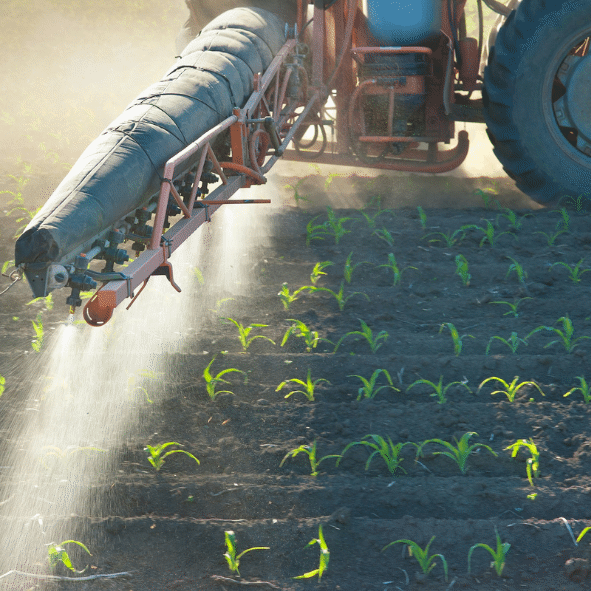
Innovation and entrepreneurship
The region is increasingly developing an innovation and entrepreneurship ecosystem, supported by collaboration between farmers, businesses, universities, and authorities. The region benefits from the presence of strong academic institutions (such as USAMV Cluj-Napoca) that support the creation of agri-tech start-ups and innovative projects. The AgroTransilvania Cluster acts as a regional innovation hub. While entrepreneurial appetite in rural areas was low in the past, a shift is now visible: niche businesses with reinvented traditional products and export-oriented businesses with regional branding are emerging. Business incubators supported by authorities and NGOs (including Local Action Groups) offer mentoring and micro-grants to farmers and young people who want to transition from subsistence farming to a sustainable agri-business. At the same time, there is growing awareness of the importance of innovation for enhancing sector resilience: local companies are investing in quality and food safety certifications, new value-added product lines, and marketing to access online markets.
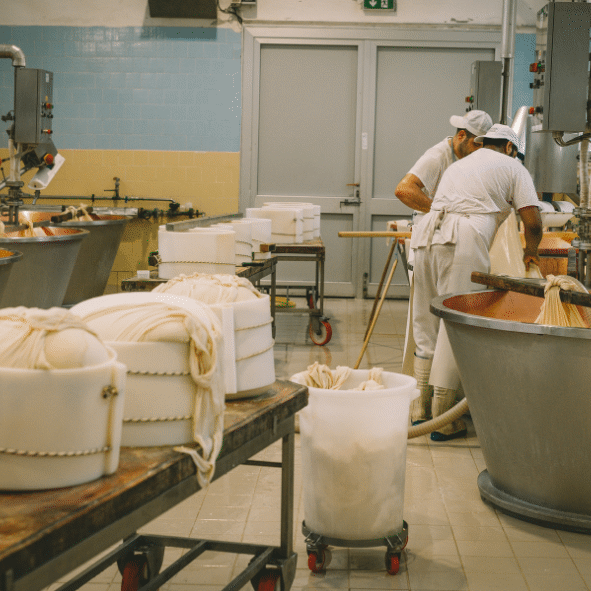
Companies
The structure of agro-food businesses in the region reflects the dual nature of Romanian agriculture: a very large number of small-scale individual farms and a much smaller number of commercial companies and processing industries. Along the processing and distribution chain, the region hosts both large, well-known companies and numerous local micro-enterprises. Alongside these major players, there is a wide array of SMEs: dairy processing workshops (artisan cheeses), bakeries, vegetable-fruit canning factories, meat packaging units, and honey processors. Many of these small businesses have found niche opportunities and promote their products under local and organic labels, gaining access to regional agro-food markets and specialized fairs. In conclusion, the agro-food business landscape in the North-West is characterized by fragmentation, but also diversity. The challenge and opportunity lie in developing complete value chains within the region so that a larger proportion of local agricultural products are processed and marketed under regional brands.
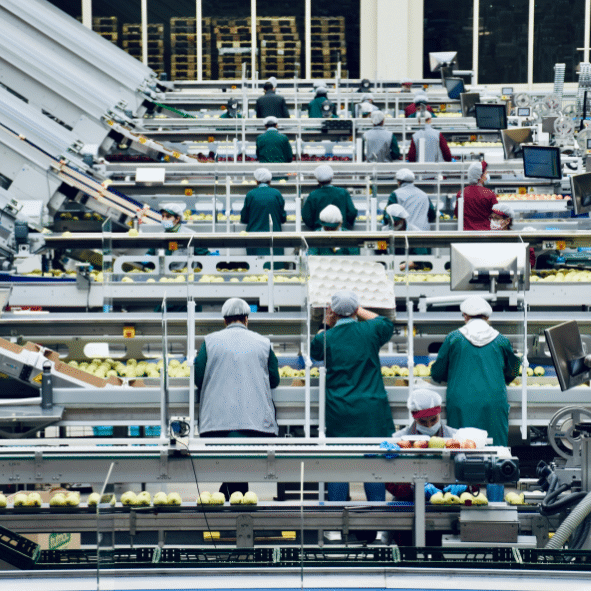
Workforce
Although numerous, the workforce faces structural and quality issues regarding employment. Workforce qualification represents a major challenge. Many active farmers are older: the aging rural population is a phenomenon in the North-West, as it is across the country, and young people are relatively few in agriculture. To improve the labor situation, several measures are being implemented: incentives for young farmers to settle (through European funds, the "young farmer" sub-measure has supported dozens of young people in taking over or starting farms), tax benefits for employees in agriculture and the food industry (income tax exemption and reduced contributions). Overall, the workforce is undergoing a transformation: still significant in number but gradually declining, with the need to become more skilled and productive.
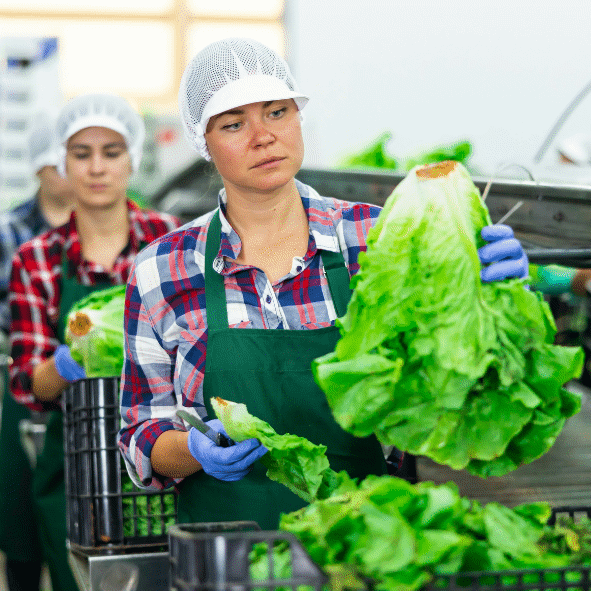
Average Wage
Salaries in the agro-food sector are generally below the national average, although they have recently increased due to tax incentives and labor demand. At the national level, the average net monthly salary reached around 4,254 RON at the beginning of 2023. In comparison, in agriculture and the food industry, the average values are lower: the average net salary in agriculture is approximately 4,200 RON per month, and in the food industry, around 3,500 RON per month, according to data from August 2023. In the North-West region, salaries in agriculture can vary quite a bit depending on the subdomain and the type of employer. In large farms and industrial processing companies (where employees are salaried with work contracts), salary levels tend to be closer to the national average for the sector: an experienced technician or tractor driver can earn 3,000-4,000 RON net per month, an agronomist around 4,300 RON, and a farm manager over 5,000 RON, depending on performance and bonuses. In the long term, with the professionalization of the sector, salaries in agriculture are expected to gradually approach the national average, reducing the perception of agriculture as a "low-paying sector."
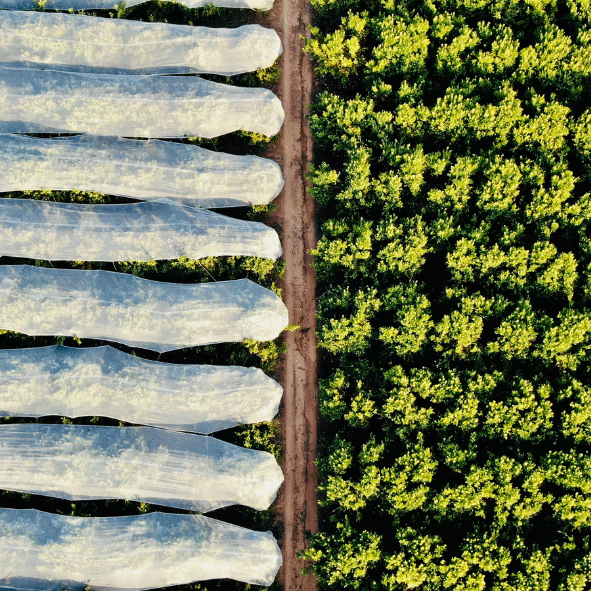
Education
The field has a significant educational framework, with higher education institutions, specialized high schools, and training programs that continuously feed the labor market with specialists. The main academic hub is USAMV Cluj-Napoca, one of the oldest and most prestigious universities in the country in this field. USAMV annually prepares hundreds of graduates in areas such as agronomy, horticulture, animal husbandry, veterinary medicine, agricultural biotechnology, and food engineering, providing theoretical and practical skills tailored to the current needs of the sector. The university collaborates closely with the private sector and authorities. Students undergo internships at local farms and food companies, while faculty members conduct applied research projects together with businesses. At the pre-university education level, each county in the region has at least one agricultural or technological high school with an agro-food profile. Although the number of students in these schools has decreased in recent decades, revitalization efforts have started to bear fruit. The challenge, however, remains in retaining graduates in the field. Often, some of the best students choose careers in research or move abroad, and agricultural high school graduates migrate to other more attractive industries.
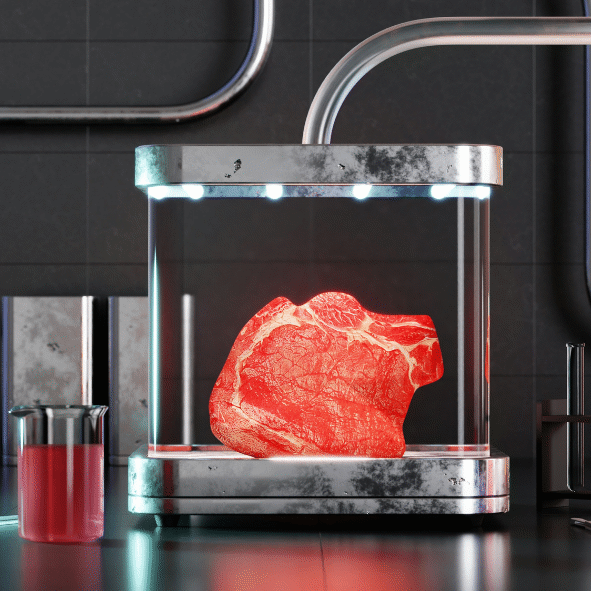
R&D
Research, development, and innovation in the agro-food sector have a strong presence in the region, supported by universities, specialized institutes, and technology transfer centers that collaborate with the private sector. USAMV Cluj-Napoca plays a central role, not only as a training ground for specialists but also as a knowledge generator: the university conducts research projects in precision agriculture, plant genetics, food safety, and rural development. National institutes and research centers relevant to the agro-food sector are also active in the region. Research in North-West directly supports agro-food modernization, providing solutions to local challenges and opening development opportunities. The integration of “from the lab to the field” is becoming increasingly visible, and the region has strengthened its reputation as an agricultural knowledge hub— a competitive advantage that, if properly harnessed, can accelerate innovation and the growth of the entire sector.
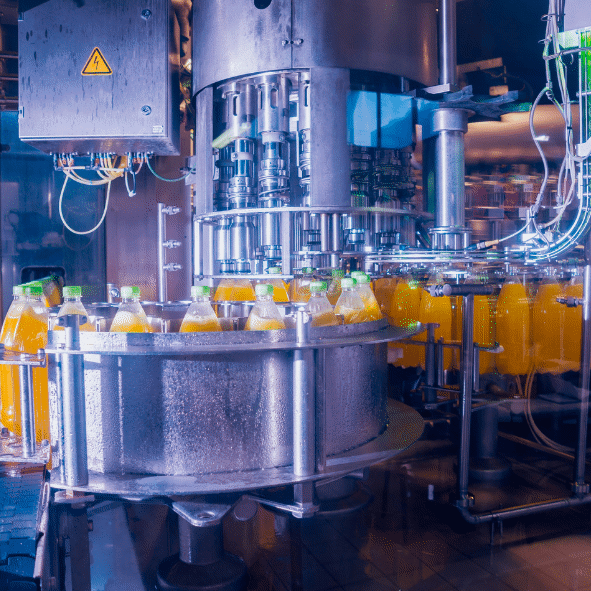
Value chains and available markets
A crucial aspect of regional agro-food development is the value chains and the available markets for producers. For many regional agro-food sectors, the value chain is incomplete or underdeveloped locally, which reduces the economic benefits that stay in the region. For example, a significant portion of cereal production is sold as raw material to national traders or exporters, rather than being processed locally. Similarly, small livestock breeders often sell live animals or carcasses to slaughterhouses outside the region due to the lack of local slaughterhouses and meat processing centers for sheep and goats. As a result, the added value from further processing and packaging is lost to the local economy. The markets for producers in the region are diverse, but each comes with its own challenges. The region needs to shorten and streamline these chains so that farmers’ work is better rewarded, and consumers have access to high-quality products. Through investments in logistics, regional branding, and policies that support local products (such as their inclusion in public procurement and gastronomic tourism promotion), value chains can become more robust and profitable.

Cooperation and association
Cooperation among actors in the agro-food sector is essential for overcoming structural disadvantages (fragmentation, small volume, and low negotiating power) and for gaining access to markets and resources. In the region, the tradition of collaboration in agriculture was weak in the post-communist period. However, the last decade has seen notable progress, driven by improvements in the legal framework and by successful examples that have inspired other producers. The main form of cooperation is agricultural cooperatives. Another level of cooperation is found in clusters and innovation networks. Such initiatives go beyond traditional cooperation and enter the realm of cooperation along extended value chains, integrating innovation components. Cooperation and association, although still at an emerging stage, have begun to take shape as transformative forces in regional agriculture. A culture of trust and collective action is gradually being built, supported by the legal framework and public interventions. In the future, a strong network of cooperatives and associations could become the backbone of Northern-Western Romania's agriculture, ensuring resilience and prosperity for rural communities.
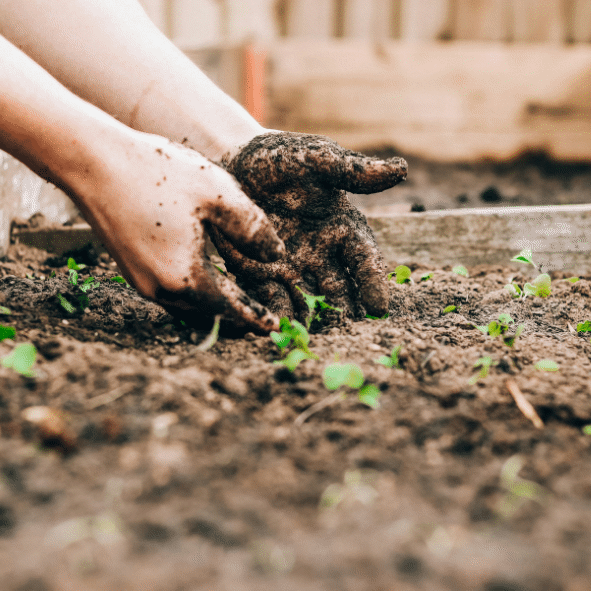
Challenges
• Fragmentation of agricultural holdings: The small average size of farms hinders mechanization and access to financing, and fragmented plots (multiple scattered lots) complicate management. • Aging rural population and lack of young labor: The aging demographic in rural areas, combined with a limited influx of young people into agriculture, presents significant challenges. • Deficient infrastructure and limited access to utilities: Inadequate infrastructure hampers development, with poor access to roads, electricity, water, and internet services. • Low local processing capacity: Limited local processing of agricultural products results in fewer value-added products and a lower degree of regional economic growth. • Low access to financing and capitalization: Small producers struggle to secure the necessary funds for expansion and technological improvements. • Market and trade practices: Local producers face fluctuating prices for their produce and low profit margins, which reduces their ability to grow and innovate. • Climate change and environmental risks: Agriculture in the region is increasingly impacted by changing weather patterns, extreme events, and other environmental factors, affecting yields and stability. • Regulations and bureaucracy: Although there are numerous support programs, the associated bureaucracy can overwhelm small producers, making it difficult to access the benefits these programs offer.
 The Common Agricultural Policy (CAP) 2021-2027
The Common Agricultural Policy (CAP) 2021-2027
 The National Agro-Food Strategy 2020-2030
The National Agro-Food Strategy 2020-2030
 Legislation on Cooperatives and Associative Forms
Legislation on Cooperatives and Associative Forms
 Land Regulations and Leasing
Land Regulations and Leasing
 Food Safety and Quality
Food Safety and Quality
 Fiscal Facilities for the Agro-food Sector
Fiscal Facilities for the Agro-food Sector
 Legislation on Organic Farming
Legislation on Organic Farming
The Common Agricultural Policy (CAP) 2021-2027 is a key component of European policy, having a significant impact on agriculture in the member states of the European Union, including Romania. The CAP 2021-2027 aims to support farmers and rural areas, promote a more sustainable and innovative agricultural sector, and contribute to strengthening rural economies. In the context of the North-West region of Romania, the implementation of the CAP will address both specific challenges and development opportunities.
The National Agro-Food Strategy 2020-2030 outlines the long-term vision and actions for the development of Romania's agro-food sector. The strategy aims to ensure the sustainable growth of agriculture, improve food security, and enhance the competitiveness of the country's agro-food industry. It focuses on modernizing agricultural practices, enhancing the quality and safety of food, increasing the sector's resilience to climate change, and promoting rural development. The strategy aligns with EU policies, including the Common Agricultural Policy (CAP), while addressing national priorities for innovation, sustainability, and market integration.
Legislation on Cooperatives and Associative Forms refers to the legal framework governing the establishment, operation, and regulation of cooperatives and other associative forms of agricultural, commercial, or social collaboration. These regulations aim to support collective action, pooling of resources, and the enhancement of bargaining power for small and medium-sized producers, fostering more efficient and competitive economic activities. The legislation covers aspects such as membership, governance, financial management, and the rights and responsibilities of cooperative members. It also provides guidelines for the creation of new cooperatives and associations, ensuring their sustainability and compliance with national and EU regulations.
Land Regulations and Leasing refer to the legal framework governing the ownership, use, and leasing of agricultural land. These regulations address issues such as land tenure, rights and obligations of landowners and tenants, leasing contracts, and the conditions under which agricultural land can be leased or rented. The goal is to ensure the efficient and sustainable use of agricultural land, protect the interests of landowners and farmers, and promote fair leasing practices in the agricultural sector.
Food Safety and Quality refer to the regulations and practices that ensure food products are safe for consumption and meet the required standards for quality. These involve measures to prevent contamination, ensure proper handling, storage, and processing, as well as compliance with hygiene standards. Food safety regulations also include the monitoring of food production processes, labeling, traceability, and certification systems to protect consumers and ensure that food products meet the necessary nutritional, safety, and quality standards.
The fiscal facilities for the agro-food sector in Romania were eliminated starting with the income for January 2025.
Previously, employees in this sector benefited from exemptions on income tax and reduced social contributions, including pensions and health insurance contributions, for monthly gross incomes ranging between 3,000 and 10,000 lei.
These measures were repealed through Emergency Ordinance No. 156/2024 as part of commitments made under the National Recovery and Resilience Plan (PNRR) and the National Medium-Term Budgetary-Structural Plan for 2025-2031.
Starting January 1, 2025, employees in the agro-food sector will pay the full income tax (10%) and social contributions (25% for pensions and 10% for health insurance). Employers will also owe the labor insurance contribution (2.25%).
In the context of eliminating these fiscal facilities, the National Federation of Unions in the Food Industry (Sindalimenta) warned about the potential negative effects, including food price increases and the forced migration of labor from the sector.
Romania has adopted specific legislation concerning organic farming, aligning with European Union regulations on the subject. Organic farming is regulated primarily through the EU Regulation 848/2018, which establishes rules for the production, certification, and labeling of organic products across the EU. In addition to this, national regulations have been set up to support the implementation of organic practices and to ensure compliance with EU standards.
